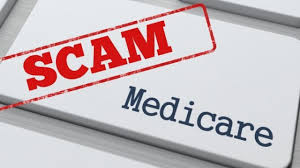Key Takeaways
- Medicare and Medicaid fraud drains financial resources and harms patient care.
- Recognizing signs of fraud helps in combating it proactively.
- Whistleblowers play a crucial role in exposing fraudulent activities.
Fraud within healthcare programs such as Medicare and Medicaid poses a significant threat to public trust and the integrity of the healthcare system. These government-funded programs, designed to provide essential healthcare to millions of Americans, are often targeted by fraudulent activities that divert funds meant for patient care. From billing schemes to misrepresentation of services, fraudulent actions not only waste taxpayer dollars but can also harm vulnerable beneficiaries. Understanding the various forms of fraud, how they occur, and the mechanisms in place to prevent and address them is crucial for safeguarding the future of these programs. This guide explores the challenges of detecting and combating fraud, providing insight into the legal measures and protections available to whistleblowers who play a vital role in uncovering these crimes.
Understanding Medicare and Medicaid Fraud
Medicare and Medicaid fraud represents a pervasive issue, encompassing a broad spectrum of illicit practices to exploit these healthcare programs for undue financial gain. These deceitful endeavors defraud the government and significantly endanger consumers while eroding the foundational trust that underpins the healthcare system. Within this complex network of fraud, the expertise of a Medicare & Medicaid fraud whistleblower attorney is indispensable. They are critical in exposing these unethical activities and initiating vital corrective legal actions. A holistic understanding of fraud patterns and proactive intervention strategies are essential in countering these schemes, directly undermining healthcare delivery’s integrity.
Common Fraudulent Schemes
Medicare and Medicaid fraud is rife with many sophisticated schemes to defraud these vital healthcare programs. Everyday fraudulent activities include billing for medical services not rendered—a practice that inflates overall healthcare costs and drains valuable resources. Additionally, falsifying patient diagnoses to justify unnecessary procedures not only misleads payer systems but can also expose patients to potentially harmful treatments. Furthermore, the practice of upcoding, where providers charge for more expensive services than performed, further exacerbates financial inefficiencies. Each deceptive practice fundamentally violates the ethical standards of healthcare, inflating costs and undermining the trust essential to patient-provider relationships.
Implications of Fraud
The implications of Medicare and Medicaid fraud extend beyond immediate financial loss, affecting the broader healthcare system’s economic and operational dimensions. Economically, fraud increases healthcare premiums and taxes, placing an undue financial burden on taxpayers who effectively bear the cost of these unethical practices. Systemically, the resources siphoned off through fraudulent activities detract from the quality and availability of authentic patient care, threatening healthcare delivery systems’ overall integrity and efficacy. This erosion of trust in healthcare services can lead to general skepticism and hesitance among consumers, further complicating patient care dynamics and discouraging patient collaboration and compliance with medical advice.
Detecting and Reporting Fraud
Heightened vigilance among healthcare providers and recipients is a crucial first line of defense against the proliferation of fraud within the Medicare and Medicaid systems. Individuals are equipped to identify potential fraudulent activities by meticulously reviewing their medical statements, ensuring they fully comprehend each charge and can identify discrepancies or services they did not receive. When such suspicions arise, promptly reporting these instances to appropriate oversight bodies is imperative. These steps ensure that agencies responsible for regulating healthcare can take legal and administrative actions to investigate and curb fraudulent activities before they escalate, thereby protecting financial and human resources.
Role of Whistleblowers
Whistleblowers are crucial allies in the fight against Medicare and Medicaid fraud. Their willingness to come forward and report fraud, often at great personal risk, can lead to significant financial recoveries and trigger essential reforms within healthcare institutions. The actions of whistleblowers act as a formidable check against widespread malpractice, contributing substantially to preserving the ethical standards and integrity of healthcare services. Though the journey to disclose fraud can be daunting, characterized by potential retaliation and personal hardship, the societal benefits underscore why their courage and persistence are essential. Whistleblowers help safeguard public resources, ensuring they are used appropriately and for the benefit of the population they are intended to serve.
Preventive Measures and Solutions
Preventing Medicare and Medicaid fraud requires a multifaceted approach emphasizing comprehensive education and stringent compliance measures. Providing healthcare providers with robust training programs on the nuances and types of fraud helps create an informed frontline defense against fraudulent activities. Implementing comprehensive audit systems that scrutinize provider claims further reinforces this line of defense by ensuring that all reported claims undergo rigorous inspection and validation. Policymakers consistently advocate for enhancing these practices and technologies, recognizing that an integrated system of education, oversight, and technological resources can effectively deter and detect attempts at fraud before they can seriously impact the healthcare system.
Resources and Support
A broad array of resources exists to assist individuals and organizations in tackling Medicare and Medicaid fraud. Numerous governmental entities provide comprehensive educational materials and guidance, facilitating a better understanding of fraud and offering practical steps for prevention and intervention. These resources hotlines and support services empower stakeholders—healthcare providers and beneficiaries—to take informed and decisive actions against fraudulent practices. Engaging with these resources fosters a transparent healthcare environment, encouraging accountability and ensuring that healthcare systems can remain focused on delivering quality care without the burden of fraud-induced constraints.
Final Thoughts
Medicare and Medicaid fraud remains a persistent and complex challenge, affecting the heart of our healthcare systems’ integrity. However, these challenges can be effectively navigated and addressed through increased awareness, vigilant detection, and proactive preventive measures. Nurturing a culture embracing transparency, accountability, and diligence stands at the forefront of protecting healthcare systems, ensuring that resources remain directed towards genuine patient care. By fostering trust, efficiency, and ethical conduct, we can protect and preserve the invaluable healthcare services on which millions depend.



